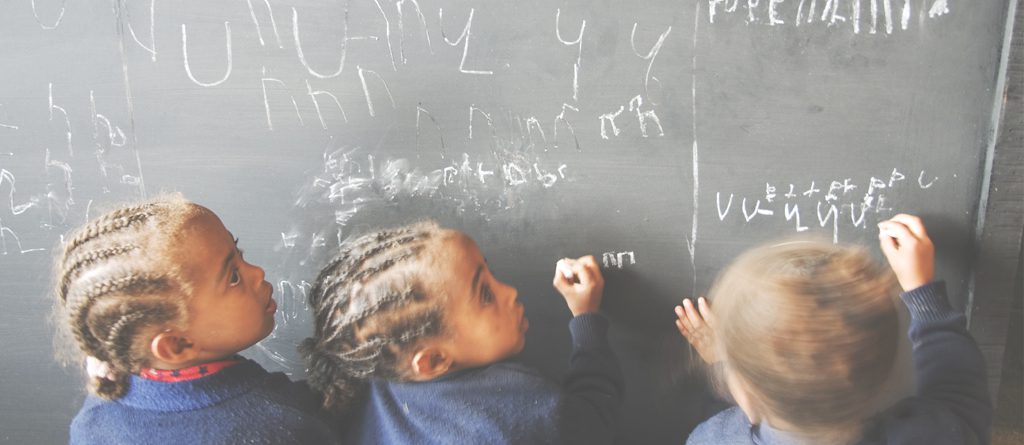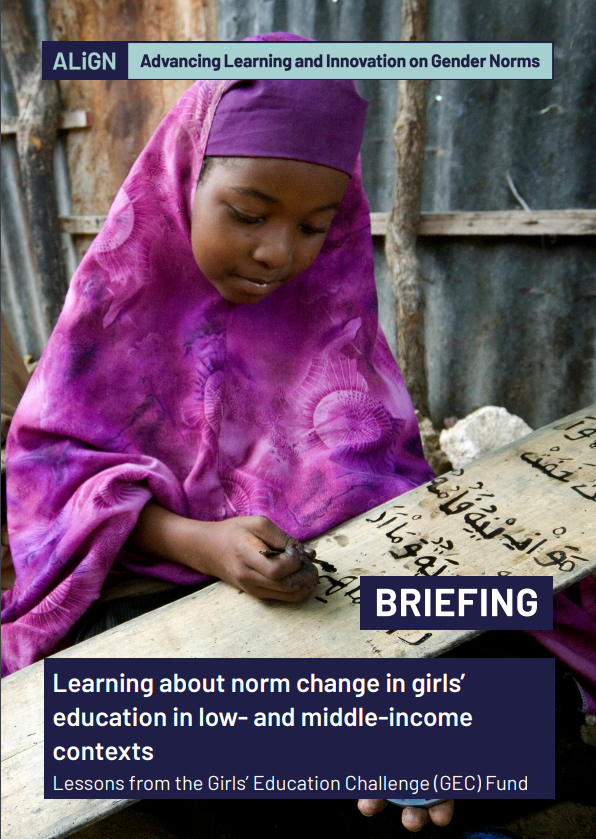
Tetra Tech International Development Europe’s work as Evaluation Manager for DFID’s Girls’ Education Challenge Fund (GEC) was one of the largest evaluations that Tetra Tech – and DFID – has ever worked on.
As part of the Advancing Learning and Innovation on Gender Norms (ALIGN) platform, Sophie Amili and Isabella Di Paolo examined the data collected through the GEC to reflect on gender norm change in educational settings in developing contexts.
Their report has now been published on ALIGN’s platform as a key piece of research on the subject. It argues that norm change may be difficult and time-consuming, but engaging with communities, teachers and young people can ease the impact of discriminatory gender norms and improve learning among marginalised girls in low- and middle-income countries.
You can take a look at the full report via the link on the right, and read an extract from our ALIGN blog below.
“Gender norms affect girls in many ways, and often limit their ability to enrol, attend and do well in school. These norms – and associated discriminatory practices – are among the greatest barriers to gender equality in education in low- and middle-income countries.
[Tetra Tech’s] desk-based study of 21 GEC projects identifies inter-related constraints on girls’ education outcomes that are rooted in long-established gender norms. Girls’ education was undervalued in many of the projects’ target communities, and seen as inappropriate or incompatible with their future roles as wives and mothers.
Norm change: what works
- Working with traditional leaders has been an effective strategy for several projects. It seems that the buy-in of powerful community members helps to promote girls’ education and influence attitudes around what is appropriate for girls.
- A focus on community dialogue can also have important knock-on effects for equitable learning. The Link Community Development Ethiopia (LCDE) project reported a reduction in teachers who prioritised boys’ learning over girls’ – a reduction attributed largely to female teachers in project schools who benefited from wider norm change in communities.
- The creation of girls’ clubs has made it easier for girls to talk about their problems, especially around pregnancy, marriage or abuse. In Kenya and South Sudan, older women counselled girls on marriage and pregnancy, and followed up with absentee girls to encourage them to return to school.
- Engaging role models and mentors, such as female teachers and community mobilisers, has helped to change perceptions of what girls can do and achieve, and improve their own motivation and aspirations. In Afghanistan and Nepal, peer mentoring and academic support gave marginalised girls the confidence to ask questions in class, including in front of boys. Evaluations reported significant improvements in numeracy and literacy for girls with mentors.
- Teachers play a central role in tackling gender norms in schools. During the Discovery project in Ghana, Kenya and Nigeria, training in gender-sensitive methods resulted in teachers not only starting to use gender-equitable language and learning materials, but also assigning classroom duties equally to boys and girls. These changes in teacher behaviour and classroom practices were, in turn, associated with higher learning scores for girls.”
